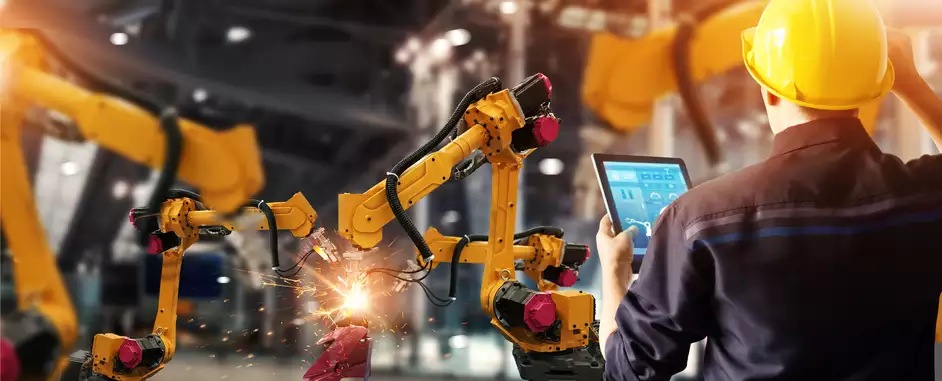Value of private wireless networks in manufacturing

The pandemic combined with the Industrial 4.0 era, has accelerated the digitization of manufacturing much faster than expected. Virtual designs, remote operations, and on-site and remote (hybrid) testing are all commonplace these days.
Private wireless networks have greatly aided the digitalization of manufacturing by supporting facilities that now require remote diagnostics, remote predictive maintenance of machines, AI/ML inclusion for sensing faults during production, and remote assisted services with user experiences that incorporate AR/VR.
In manufacturing, higher performance networks are required to enable a new generation of applications, resulting in an increasingly complex set of interactions of data between device, machine and human processes.
The fragmented landscape of today’s many different wireless technologies has created adoption barriers such as proprietary device networks, hesitant users and buyers, and broken promises about the potential of wireless technologies. Many wired and wireless networks support operational environments. Because they enable relatively simple, stand-alone applications, multiple, overlapping networks tend to be uncoordinated as they enable relatively simple, standalone applications. Current wired and wireless networks face significant challenges providing the flexible, dependable, high-bandwidth connectivity required for manufacturing, especially in mission critical environments.
Private LTE and 5G networks that use dedicated equipment and services for a specific enterprise, site, or geographic area can help solve many of the challenges of current networks in a cost-effective manner while also enabling new, higher-value applications. The value of 5G networks are speed, security and reliability. 5G will drive new processes and creation of new business opportunities. It will increase efficiency and production throughput. 5G will enhance collaboration, worker safety, remote expert support and optimize maintenance through proactive and predictive models. 5G will also play a key role in modernizing aging infrastructure, it will enable the collection of real time data which will be critical in decision making, data integrity and provide manufacturers with data driven decision making.
Networking requirements in industrial and mission-critical environments are distinct. Until recently, manufacturing operations to support deterministic control and automation applications have been dominated by wired networks. New customer needs, on the other hand, are driving the proliferation of wireless networks.
New requirements are driving up the costs and complexity of networks in industrial manufacturing, opening the door for the implementation of private LTE networks.
Nokia and Verizon are helping enterprises design, implement, manage and support private LTE networks that use CBRS spectrum, lowering the cost and increasing the flexibility of high-performance networks to support new applications like Remote config/control, Predictable uptime, and Video as a sensor. These private LTE solutions assist industrial enterprises in preparing for the industrial 4.0 future.
Private LTE networks are cellular network solutions that use flexible spectrum access technologies to provide dedicated equipment and services for a specific enterprise, venue or geographic area.

What role can private LTE networks play in optimizing your industrial manufacturing operations? How can they complement and enable digital and IoT use cases throughout your organization?
Join Nokia for Industries and Verizon with Harbor Research for an informative webinar on how private networks drive value in industrial manufacturing.
You will learn what’s driving the market for private networks, as well as trends and real-world industrial use cases. We will discuss how improved connectivity and predictable uptime can drive results for a digital plant or factory, how collaboration tools can improve the experience of the connected worker, how quality control can improve yield optimization on the automated shop floor, and much more!





